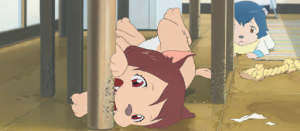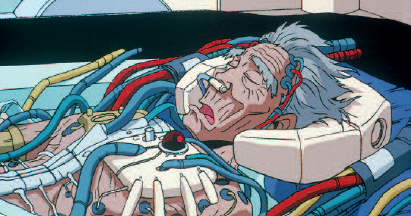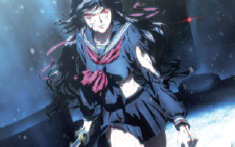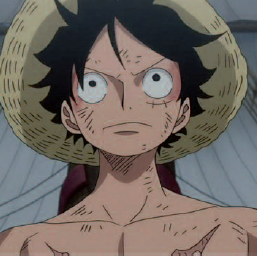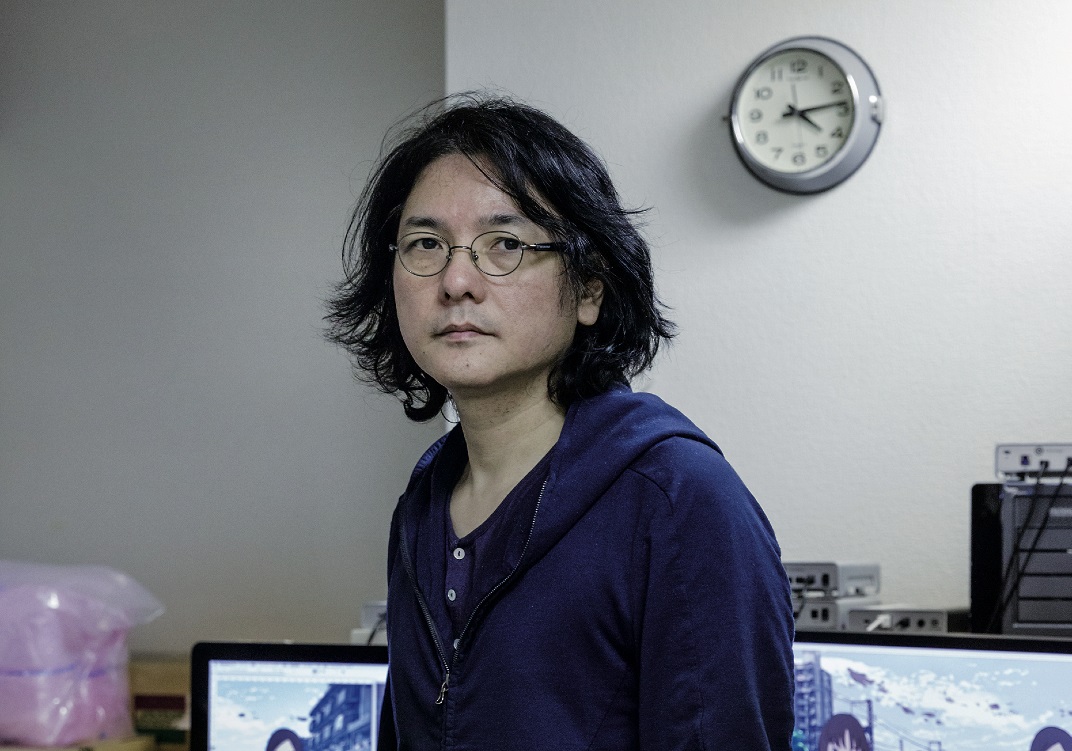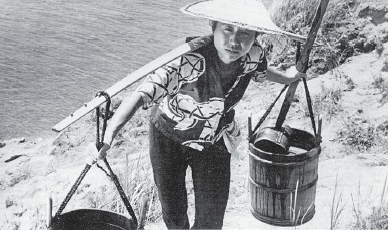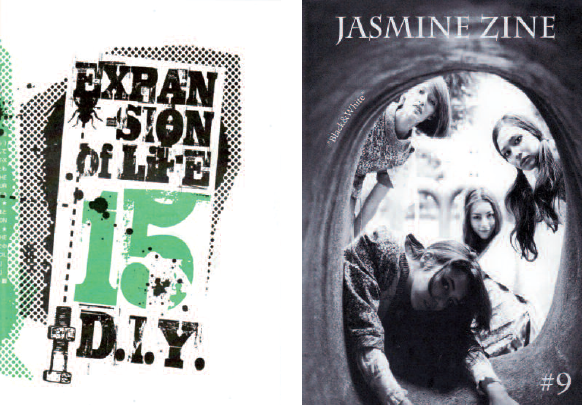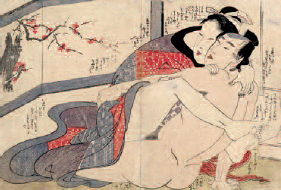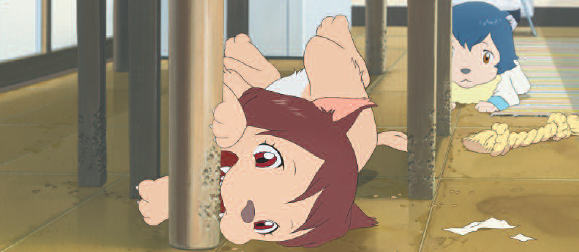
© 2012 “WOLF CHILDREN” FILM PARTNER
With Wolf Children, Hosoda Mamoru marks an important milestone in the history of animation.
Hosoda Mamoru is a virtuoso. This is no exaggeration given the new dimension he has introduced to animation. He was recognised for The Girl Who Leapt Through Time (2006) and acclaimed for Summer Wars (2009) and has now found further renown with his latest work: Wolf Children. This craftsman has never stopped getting better, with original scripts that make you reflect on the world we live in. His latest opus perfectly illustrates this talent and sensitivity. Released on the 21st of July 2012 in Japan, the film attracted over 2.5 million viewers in the space of only four. The novel adapted from Hosoda Mamoru’s script also did extremely well and was at the top of the bestseller list for a number of weeks. The viewers who fell in love with the film ran to bookshops to relive the adventures of this somewhat unusual family, with whom we all have a lot in common. As the director himself says, it is up to the viewers to appropriate his work and to find elements that remind them of their own story. That is where Hosoda’s strength lies. He was able to build a work of art in which everyone recognizes themselves. Childhood, motherly love, moments of happiness and harder times are all themes which run through the film and help us reflect on what makes a family in our world. Hosoda had already tackled a similar subject in Summer Wars by showing that a well-knit family could triumph against adversity. In Wolf Children, Hosoda doesn’t start out with a ready-made family, but instead builds it up from disparate individuals over the space of two and a half hours. We can’t help but be amazed at this cinematic performance and it is very rare for anyone to have achieved this so simply and effectively. Hosoda Mamoru chose to start with the meeting between two beings with very little in common. Hana is a shy student who falls in love with a wild youth who also happens to be a wolf man. By depicting this unusual relationship, the director reminds us of our right to be different and that love is always capable of shaking up preconceptions. They have a daughter, Yuki and a son, Ame before the father disappears in brutal circumstances and Hana is left alone to bring up both of her children. After these events Hana’s personality changes as she vows to do the best for her children and provide them with the environment they need to grow and prosper. Hana’s determination is exemplary. She learns to be a single mother by relying only on her own will and love for Yuki and Ame. All of this is presented with impressive simplicity and style.
We are completely taken in by Hosoda. With amazing power, he succeeds in sucking us into his world without using over-the-top graphics or spectacular effects. Hosoda is a definitive craftsman, a goldsmith whose precision and attention to detail result in an absolute masterpiece. The care he takes with the drawing, to the point that one sometimes wonders if it is not actually photography, the settings and the impeccable editing all give a amazing depth to this story of a family that moves to the countryside to make its way. It is a life lesson that nevertheless does not fall into pathos but gets us thinking. Despite the seriousness of the subject, the director also never forgets humour. You can’t stop yourself laughing when you see Hana hesitate between a pharmacy and a veterinary clinic to have her sick child cured and it is always fun to see Yuki turn into a wolf every time she gets upset. Hana’s perseverance and her refusal to shy away from whatever sacrifice is necessary for her children to be happy are very moving. She even accepts that her son abandons the world of men to return to nature. Because he is a fantastic director – both a great storyteller and a brilliant technician – Hosoda Mamoru delivers a film that will without doubt become a reference point in the history of cinema. Millions of Japanese fans cannot be wrong and now it is time for British audiences to be wowed by this warm, charming and masterfully told tale.
O. N.

